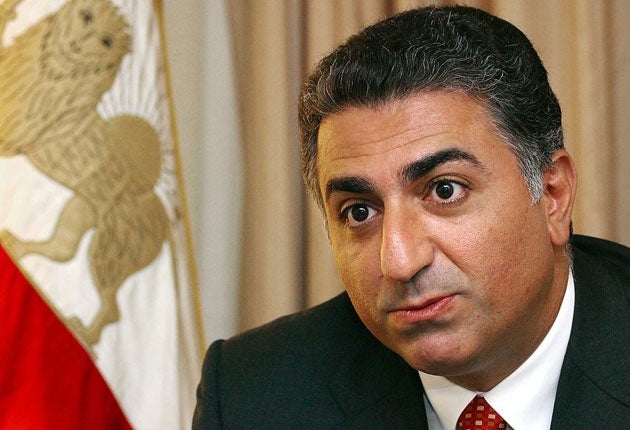World Focus: Shah's exiled son bids to unite fractured Iran

The scene is a London townhouse near Victoria. The heir to the throne of Iran, the eldest son of the late Shah, is holding court before a small audience of Iranian exiles and Middle East analysts crowded into the living room. It is a far cry from the sumptuous palaces of his father in Tehran, now transformed into museums by the Islamic Republic. But Reza Pahlavi (who answers to both "Your Majesty" and Mr Pahlavi), is plotting his return to the land he was forced to leave as a teenager when the 1979 revolution brought militant Shiism to power.
His strategy: to use the internet to link Iranians inside and outside the country and – with the help of international pressure – secure regime change. Mr Pahlavi recognises that the bitter memories of his father's rule, during which thousands of Iranians were imprisoned and killed by the Shah's notorious secret police, the Savak, have eclipsed his legacy. But although there may be residual nostalgia for the secular and modernising Shah, his 48-year-old son remains an unknown quantity. The wealthy US-based businessman seems remote from the concerns of the average Iranian and demonstrations that he organised in the past were harshly repressed.
Mr Pahlavi, who concentrated in the past on rousing the Iranian diaspora, is now placing his hopes in the young generation which makes up 70 per cent of the Iranian population. "We need to discover the new generation, the children of the revolution," he argues.
He hopes to unite under his umbrella the disparate movements that have been riven by ideological divisions. Like other opposition leaders, he believes that, although it will take time, the country is ripe for a campaign of civil disobedience. But the clerical regime has extended political repression into the social and cultural spheres. As a result, no credible Iranian opposition leader has emerged who is still living in Iran. "If you find anyone better than I, let me know. If you don't find anyone better, I'm your guy," he says.
As for restoring the monarchy, the heir to the "peacock throne" insists the people would decide in a referendum during a transition to parliamentary democracy.
But while Mr Pahlavi might have had an open door to the White House under George Bush, it is less likely the Obama administration will have the same enthusiasm for the exiled Iranian leaders, having offered diplomatic overtures to Tehran.
And hopes of mobilising young Iranians through the internet could be difficult. In the latest crackdown, Iranian authorities are said to have blocked access to Facebook and YouTube.
"What they are really afraid of is people finding a way to talk to each other, outside the official channels," said Hadi Ghaemi, a human rights activist.
Subscribe to Independent Premium to bookmark this article
Want to bookmark your favourite articles and stories to read or reference later? Start your Independent Premium subscription today.

Join our commenting forum
Join thought-provoking conversations, follow other Independent readers and see their replies